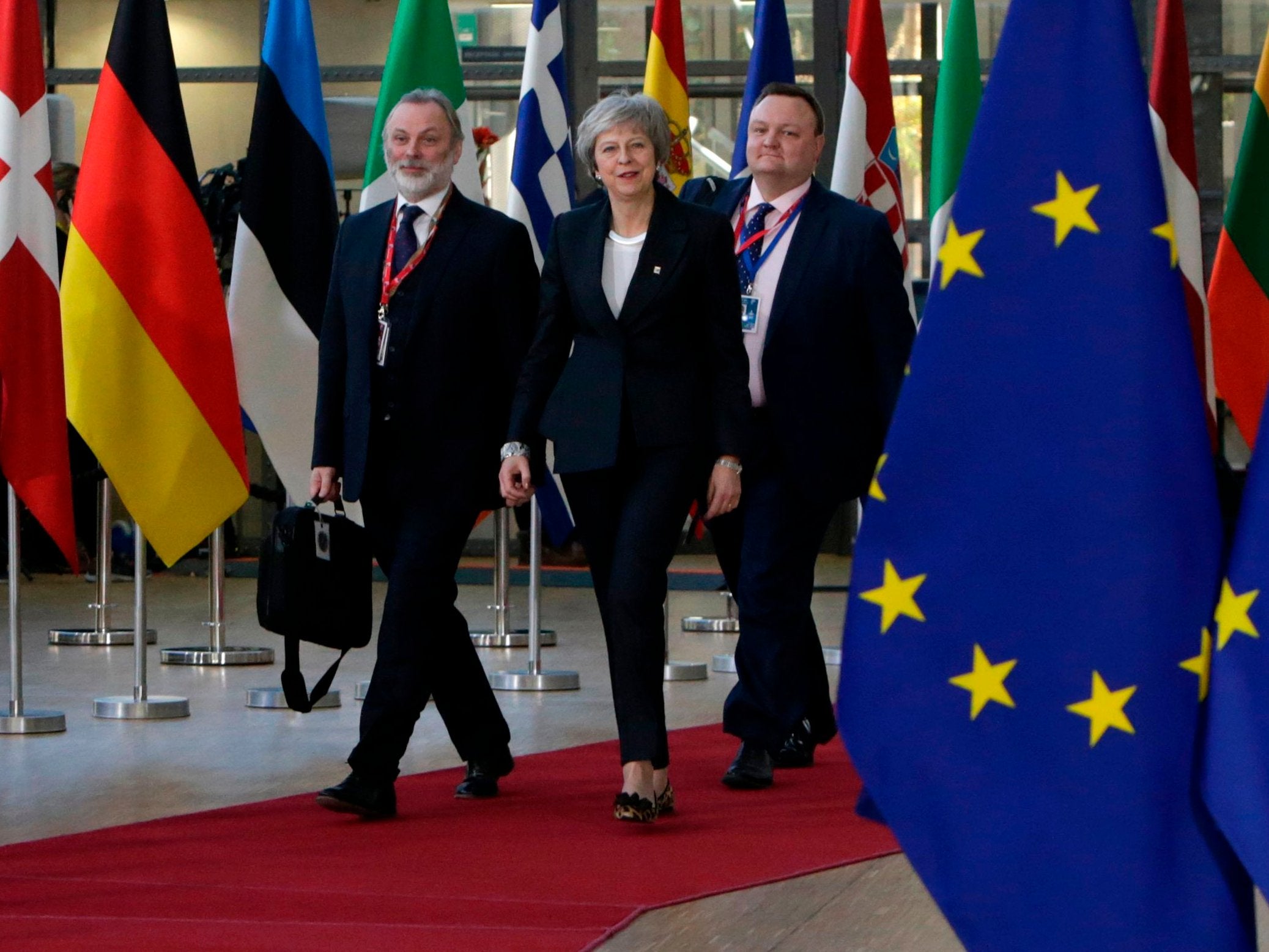Theresa May is looking to have her cake and eat it with the withdrawal agreement – but her chances of success are poor
There is a lazy assumption that this sort of fudge is how Brussels does business, and that nothing much ever gets agreed before a hard deadline actually stares the diplomats and politicians in the face

The prime minister is certainly enjoying – if that is the right word – a rollercoaster of a ride at the moment. Straight after emerging from the Tories’ very own Valley of Death, a parliamentary vote of no confidence, she finds herself on an RAF jet again, this time winging her way to an EU summit in Brussels. From squabbling with Bill Cash and Andrew Bridgen, she will be playing power politics with President Macron and Chancellor Merkel.
Her latest Mission Impossible is to persuade the European leaders to provide sufficient “reassurances” to her troubled backbenches and the Democratic Unionist Party. She will be telling the other 27 leaders that without some kind of guarantee that the Northern Ireland “backstop” will not be permanent, the agreement will not be approved by parliament.
She will point to her own recent travails to prove the point. She scarcely needs to. Her counterparts will be well aware that MPs want to have their cake and eat it, and are in a rebellious enough mood to demand they can. Her implicit warning is that this is precisely what might happen, in which case they will be dealing with a “chaotic” Brexit and, in all likelihood, a new prime minister even less to their liking – Boris Johnson, a man even more politically notorious on the other side of the English Channel than at home.
What are the chances? They seem poor. When she made her “victory” statement outside No 10 after the confidence vote, she pointedly declared: “I will be seeking legal and political assurances that will assuage the concerns that members of parliament have on that issue.”
That word “legal” sets the bar high for Ms May. Sympathetic European colleagues have indicated to her that they are very happy to help with forms of words and statements of intent, expressions of goodwill and even side letters that “clarify” matters. Such subsidiary documents have been used many times in European diplomacy, and one such was deployed at the very last moments in the withdrawal agreement talks to defuse the question of Gibraltar.
So Ms May will no doubt be seeking as strong a formation of words as possible in as legally binding a form as possible from the European Union. She accepts that the EU will not “renegotiate” the deal they have spent a year discussing. She has also warned her own MPs that re-opening the agreement would in fact risk the European side pushing for counter-concessions of their own. She does, though, want to have her cake and eat it – a legally binding agreement with the status of an international treaty that satisfies the EU and Ireland about keeping an open border in Ireland through a customs union; and an equally legally valid declaration that says the opposite, and guarantees the UK the right to withdraw unilaterally from the customs union.
It will be interesting to see what the attorney general’s advice about that will be.
There is a lazy assumption that this sort of fudge is how Brussels does business, and that nothing much ever gets agreed before a hard deadline actually stares the diplomats and politicians in the face. It is true that there are plenty of examples of such all-night activity yielding unlikely breakthroughs in the long history of the European Union, but this time, as they say, may be different.
So the process of securing an orderly exit of the UK from the EU is turning into a game of poker, if not of chicken. Who will blink first? The EU or the British? The problem for Ms May and for her European counterparts is that the parties around each side – the Irish government and the DUP especially – are acutely conscious of the distinction between some airy rhetoric and hard, precise clauses justifiable in an international court. In a memorable phrase, one DUP MP has remarked that his party – veterans at last-minute deals and tough negotiations – have had their eyelids removed, so determined are they to get what they want, and unfazed by Ms May’s usually empty threats.
Ms May may get lucky this time, but the chances are that, in a month or so, nothing will have changed, to repeat once again that unhappy soundbite of hers. Maybe the prime minister will soon realise that the ultras on her own backbenches and the DUP are irreconcilable, and that nothing short of a formal and substantive revision of the UK-EU withdrawal agreement’s wording will satisfy them. The EU will not agree to this.
In other words, Ms May will need to look elsewhere for support to get something – anything – through parliament before the “hard Brexit” crash-out takes effect on March 29. That has to mean the more reasonable and flexible MPs in her own party and the opposition benches could be persuaded to pursue another course. This would be a different, softer, Brexit, possibly meaning permanent membership of a customs union; or a second referendum in which her deal can be put before the public as the only possible Brexit deal, set against the option to Remain. It would be very stressful to have to reach that conclusion in January rather than now. Ms May, and the rest of us, has a few more gyrations on the rollercoaster to endure before common sense prevails.

Join our commenting forum
Join thought-provoking conversations, follow other Independent readers and see their replies